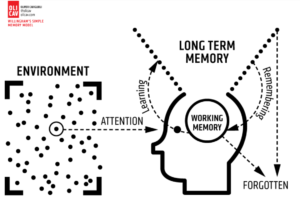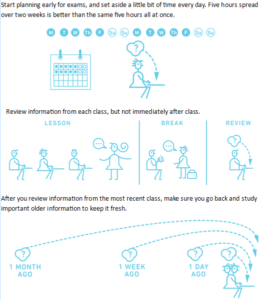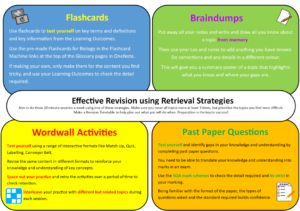TIME spent studying at home is only time well spent if the strategies being used are EFFECTIVE.
Learning and understanding the concepts covered in science subjects takes time, focus and effort. The VOLUME of content is considerable and the PACE can make students feel like they have little time to consolidate their learning before starting something new.
In order to form long term memories, we need to:
- Be receptive to new information by paying attention in class
- Actively process the information we are taking in
- Practise retrieving that information from our long term memory to reinforce it

Image from Oliver Caviglioni’s Visual Clarity site OliCav
We build in time during our lesson to allow students to REVIEW what they have learned in previous lessons and assess their prior knowledge, PRACTICE and process the concepts being learned and PROVE that they know and understand it by measuring it against clear SUCCESS CRITERIA. Regular FORMAL HOMEWORK that learners submit allows teachers to provide FEEDBACK and guage understanding and progress.
Ongoing SELF-STUDY out with the classroom helps with the consolidation process and helps to students to LEARN and RETAIN information over time.
The “LITTLE and OFTEN” approach to study is advocated as being more effective than longer blocks of time spent in a single sitting. Three to four 20 minute sessions per subject per week is likely to be more effective than a single 1.5 hour session.
See our Guide for more information Study strategies guide

When studying, the strategies you use should require you to make links between concepts and RETRIEVE information from MEMORY.
Retrieval Strategies for Revision

Class teachers will make resources available through Teams and students can get help and support in the regular SUPPORTED STUDY SESSIONS that run in each department.

